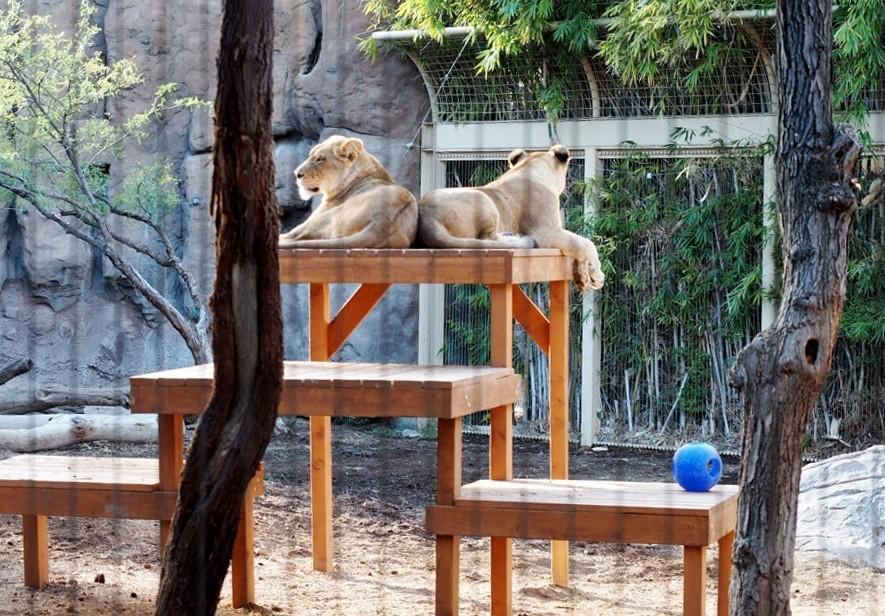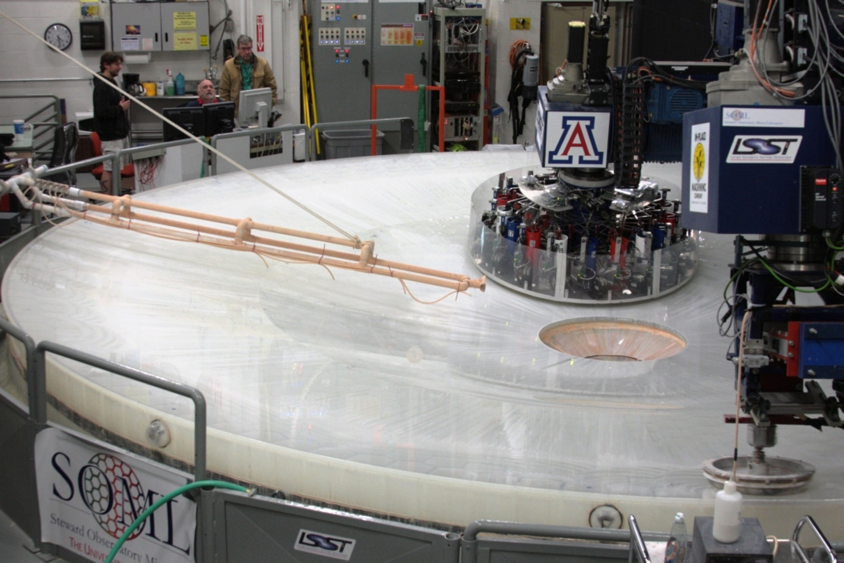UA’s School of Natural Resources and the Environment (SNRE) is now offering an undergraduate certificate in Zoo and Aquarium Conservation (ZAC), featuring a new course introduced last year.
The certificate comes as a result of student interest in conservation careers as well as the important role of zoos and aquariums in modern conservation. The certificate will supplement the established conservation program at UA.
“Students often became interested in animal conservation when their interest was piqued by visits to the zoo or television shows hosted by zoo-associated biologists,” said John Koprowski, professor and associate director of the School of Natural Resources and the Environment. “Not only have zoos and aquariums inspired interest in animal conservation but they now serve as important partners in conservation efforts and thus are another tool in the toolbox of scientists interested in wildlife and fisheries conservation and management, a long-time program here at the University of Arizona.”
The brainchild of Koprowski and Katie Hughes, an academic advisor within the school, the certificate in Zoo and Aquarium Conservation was created to fulfill a student desire to work in zoos after graduation.
The certificate will help them do so, broadening their experiences and diversifying their skills and knowledge in conservation.
RELATED: University collaboration fights snake bites around world
Like any science, conservation has evolved and thus requires students equipped with the most up to date knowledge and the skills necessary to overcome challenges. Conservation efforts across the globe have been relying more and more on zoos and aquariums, which allow for the breeding of endangered species, as well as protection and further study.
“For students interested in saving the most critically endangered species in Arizona and around the globe, zoos and aquariums provide an important tool to enhance success,” Koprowski said. “Collaboration is what is necessary to handle the challenges associated with animal conservation and the ZAC certificate enables us to emphasize this importance.”
In order to receive the certificate, students must take three courses and complete an approved internship. While two of the courses are a predetermined set, the third and final course can be chosen from a large number offered within the SNRE and the School of Animal Comparative and Biomedical Sciences. The small number of requirements means the certificate is ideal for any student with even a mild interest in conservation and the science behind it.
Collaboration is a key aspect of the certification, as partnerships with several organizations in Tucson will help students gain more experience in various fields of conservation. The core class, WFSC 385: Zoo and Aquarium Conservation, will feature talks from professionals working at the Reid Park Zoo and the Arizona Sonoran Desert Museum, both of which are involved in conservation efforts within the state, alongside other organizations. Relatively new to UA, students enrolled in the course will hear from all manner of professionals involved in zoo conservation.
In addition to the experiences gained, the certificate will demonstrate a student’s dedication to conservation to a future employer.
RELATED: Biologists find key traits for species success
While the certificate has courses and knowledge that may seem more geared toward students studying the sciences, any and all students are welcome and encouraged to complete the program and learn more about how zoos and aquariums aid conservation efforts.
Koprowski, who teaches one of the required courses required for the certificate, hopes that students from all majors will be interested in completing the certificate. “Students can complete this certificate regardless of their major and thus we hope may come from all corners of campus,” said Koprowski. “We look for students who have a passion to make a difference in the protection and restoration of our natural world.”
If interested in completing the certificate or for more information students can contact an academic advisor within the SNRE.
Follow Nicole Morin on Twitter.









